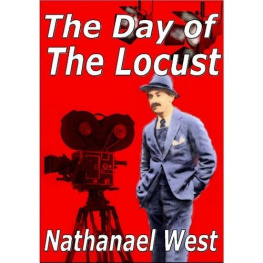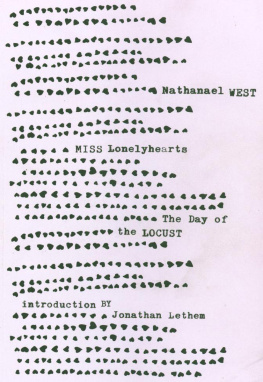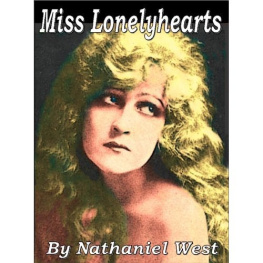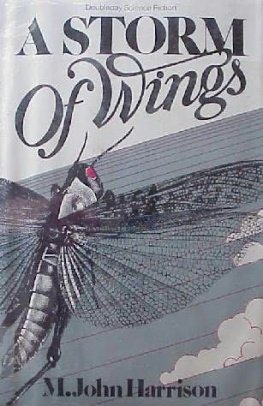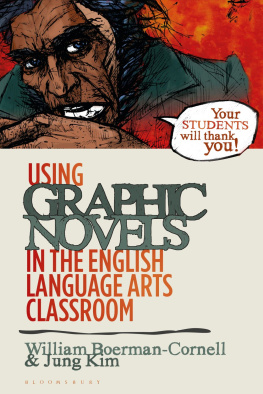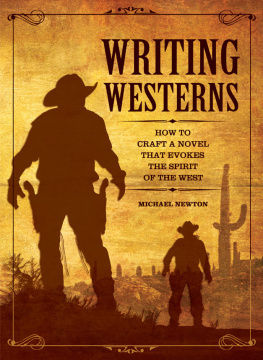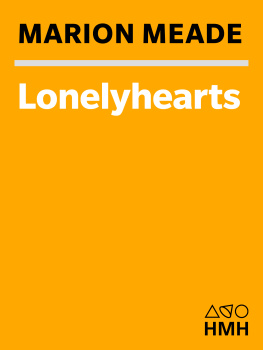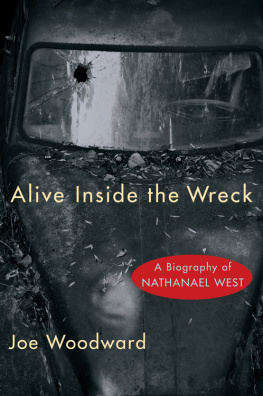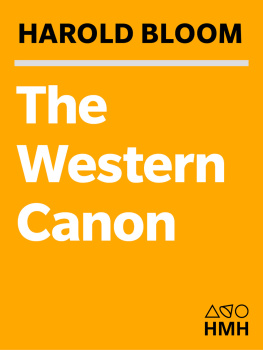~~~~~~~~~~~~~~~~~~~~~~~~~~~~~~~~~~~~
| This site is full of FREE ebooks - Check them out at our Home page - Project Gutenberg Australia |
Title: The Day of the Locust (1939) Author: Nathanael West * A Project Gutenberg of Australia eBook * eBook No.: 0609041.txt Language: English Date first posted: November 2006 Date most recently updated: November 2006
Project Gutenberg of Australia eBooks are created from printed editions which are in the public domain in Australia, unless a copyright notice is included. We do NOT keep any eBooks in compliance with a particular paper edition.
Copyright laws are changing all over the world. Be sure to check the copyright laws for your country before downloading or redistributing this file.
This eBook is made available at no cost and with almost no restrictions whatsoever. You may copy it, give it away or re-use it under the terms of the Project Gutenberg of Australia License which may be viewed online at http://gutenberg.net.au/licence.html
To contact Project Gutenberg of Australia go to http://gutenberg.net.au
-------------------------------------------------------------------------
Title: The Day of the Locust (1939) Author: Nathanael West
1
Around quitting time, Tod Hackett heard a great din on the road outside his office. The groan of leather mingled with the jangle of iron and over all beat the tattoo of a thousand hooves. He hurried to the window.
An army of cavalry and foot was passing. It moved like a. mob; its lines broken, as though fleeing from some terrible defeat. The dolmans of the hussars, the heavy shakos of the guards, Hanoverian light horse, with their fiat leather caps and flowing red plumes, were all jumbled together in bobbing disorder. Behind the cavalry came the infantry, a wild sea of waving sabretaches, sloped muskets, crossed shoulder belts and swinging cartridge boxes.. Tod recognized the scarlet infantry of England with their white shoulder pads, the black infantry of the Duke of Brunswick, the French grenadiers with their enormous white gaiters, the Scotch with bare knees under plaid skirts.
While he watched, a little fat man, wearing a cork sun-helmet, polo shirt and knickers, darted around the corner of the building in pursuit of the army.
"Stage Nine--you bastards--Stage Nine!" he screamed through a small megaphone.
The cavalry put spur to their horses and the infantry broke into a dogtrot. The little man in the cork hat ran after them, shaking his fist and cursing.
Tod watched until they had disappeared behind half a Mississippi steamboat, then put away his pencils and drawing board, and left the office. On the sidewalk outside the studio he stood for a moment trying to decide whether to walk home or take a streetcar. He had been in Hollywood less than three months and still found it a very exciting place, but he was lazy and didn't like to walk. He decided to take the streetcar as far as Vine Street and walk the rest of the way.
A talent scout for National Films had brought Tod to the Coast after seeing some of his drawings in an exhibit of undergraduate work at the Yale School of Fine Arts. He had been hired by telegram. If the scout had met Tod, he probably wouldn't have sent him to Hollywood to learn set and costume designing. His large, sprawling body, his slow blue eyes and sloppy grin made him seem completely without talent, almost doltish in fact.
Yes, despite his appearance, he was really a very complicated young man with a whole set of personalities, one inside the other like a nest of Chinese boxes. And "The Burning of Los Angeles," a picture he was soon to paint, definitely proved he had talent.
He left the car at Vine Street. As he walked along, he examined the evening crowd. A great many of the people wore sports clothes which were not really sports clothes. Their sweaters, knickers, slacks, blue flannel jackets with brass buttons were fancy dress. The fat lady in the yachting cap was going shopping, not boating; the man in the Norfolk jacket and Tyrolean hat was returning, not from a mountain, but an insurance office; and the girl in slacks and sneaks with a bandanna around her head had just left a switchboard, not a tennis court.
Scattered among these masquerades were people of a different type. Their clothing was somber and badly cut, bought from mail-order houses. While the others moved rapidly, darting into stores and cocktail bars, they loitered on the corners or stood with their backs to the shop windows and stared at everyone who passed. When their stare was returned, their eyes filled with hatred. At this time Tod knew very little about them except that they had come to California to die.
He was determined to learn much more. They were the people he felt he must paint. He would never again do a fat red barn, old stone wall or sturdy Nantucket fisherman. From the moment he had seen them, he had known that, despite his race, training and heritage, neither Winslow Homer nor Thomas Ryder could be his masters and he turned to Goya and Daumier.
He had learned this just in time. During his last year in art school, he had begun to think that he might give up painting completely. The pleasures he received from the problems of composition and color had decreased as his facility had increased and he had realized that he was going the way of all his classmates, toward illustration or mere handsomeness. When the Hollywood job had come along, he had grabbed it despite the arguments of his Mends who were certain that he was selling out and would never paint again.
He reached the end of Vine Street and began the climb into Pinyon Canyon. Night had started to fall.
The edges of the trees burned with a pale violet light and their centers gradually turned from deep purple to black. The same violet piping, like a Neon tube, outlined the tops of the ugly, hump-backed hills and they were almost beautiful.
But not even the soft wash of dusk could help the houses. Only dynamite would be of any use against the Mexican ranch houses, Samoan huts, Mediterranean villas, Egyptian and Japanese temples, Swiss chalets, Tudor cottages, and every possible combination of these styles that lined the slopes of the canyon.
When he noticed that they were all of plaster, lath and paper, he was charitable and blamed their shape on the materials used. Steel, stone and brick curb a builder's fancy a little, forcing him to distribute his stresses and weights and to keep his corners plumb, but plaster and paper know no law, not even that of gravity.
On the corner of La Huerta Road was a miniature Rhine castle with tarpaper turrets pierced for archers. Next to it was a little highly colored shack with domes and minarets out of the Arabian Nights. Again he was charitable. Both houses were comic, but he didn't laugh. Their desire to startle was so eager and guileless.
It is hard to laugh at the need for beauty and romance, no matter how tasteless, even horrible, the results of that need are. But it is easy to sigh. Few things are sadder than the truly monstrous.
2
The house he lived in was a nondescript affair called the San Bernardino Arms. It was an oblong three stories high, the back and sides of which were of plain, unpainted stucco, broken by even rows of unadorned windows. The faade was the color of diluted mustard and its windows, all double, were framed by pink Moorish columns which supported turnip-shaped lintels.
His room was on the third floor, but he paused for a moment on the landing of the second. It was on that floor that Faye Greener lived, in 208. When someone laughed in one of the apartments he started guiltily and continued upstairs.
As he opened his door a card fluttered to the floor. "Honest Abe Kusich," it said in large type, then underneath in smaller italics were several endorsements, printed to look like press notices.
"...the Lloyds of Hollywood"--Stanley Rose.
Next page
